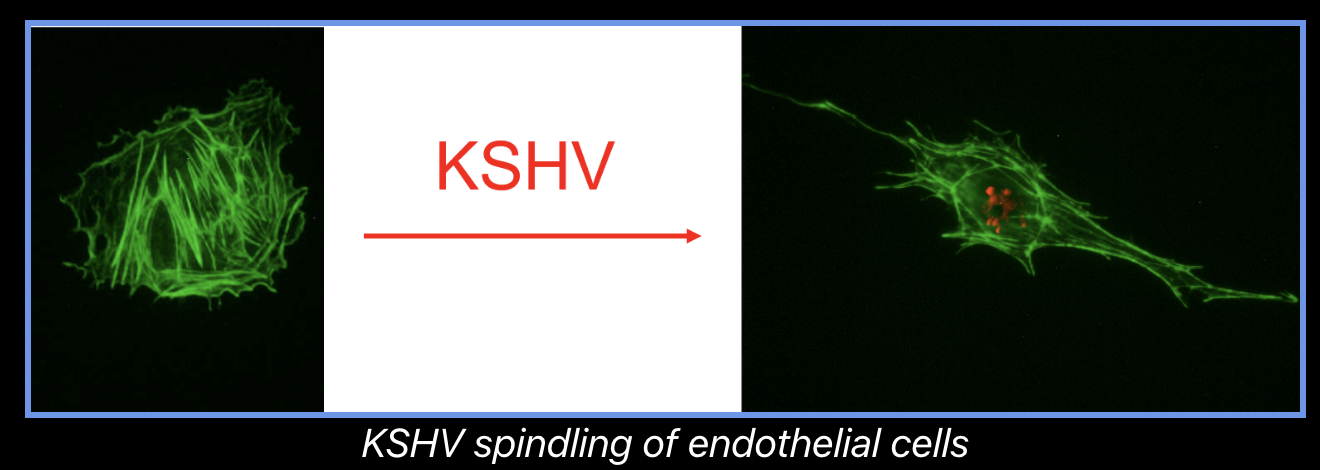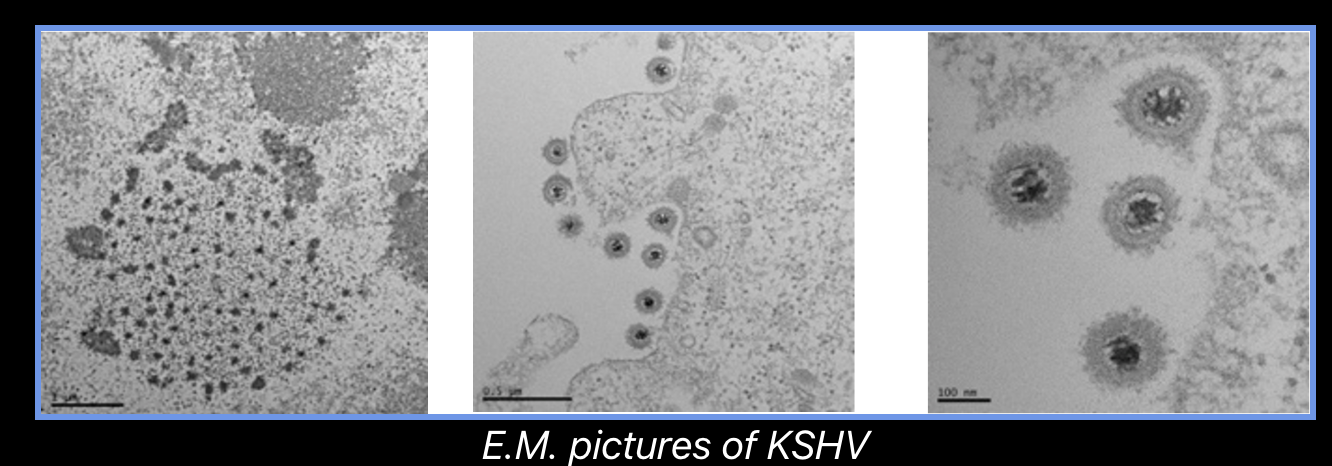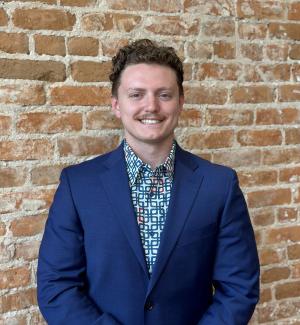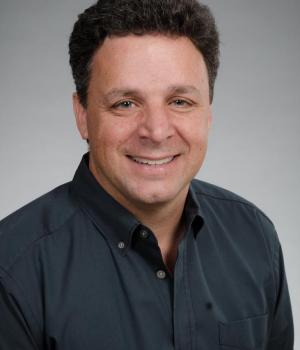Michael Lagunoff
Michael Lagunoff
The Lagunoff lab is interested in how viruses and cancer. Approximately 15% of all human cancer has a viral etiology. A better understanding of the mechanisms of virus induced cancers will lead to a better understanding of both viral pathogenesis and oncogenesis.
Kaposi’s Sarcoma is among the most common tumors in sub-Saharan Africa and was the most common tumor of AIDS patients world-wide. The lab is primarily focused on the etiologic agent of Kaposi’s Sarcoma, the eighth human herpesvirus, commonly referred to as Kaposi’s Sarcoma herpesvirus (KSHV). KSHV is a gamma-herpesvirus and is present in the main tumor cell of all KS tumors, the spindle cell. Spindle cells express markers of lymphatic endothelium. The lab is interested how KSHV alters endothelial cells and how this could lead to cancer
The lab is focused on a number of virus host interactions including:
How KSHV alters host cell metabolism: KSHV alters host cell metabolism similarly to cancer cell metabolism. We showed that KSHV induces the Warburg effect and requires glycolysis for the survival of latently infected cells similarly to most cancer cells. Metabolomics of KSHV infected endothelial cells showed that both fatty acid synthesis and glutaminolysis are also strongly induced in KSHV infected cells and we found that both metabolic pathways are similarly required for the survival of latently infected cells. Recent work has examined the role of mitochondrial biology during KSHV latency and the requirement of mitochondrial respiration during KSHV infection.
KSHV induced cell proliferation: We found that KSHV leads to proliferation past senescence in human neonatal lymphatic endothelial cells but not in blood endothelial cells. Growth past senescence is the first step of immortalization. We demonstrated that the KSHV viral cyclin homolog is required for KSHV induced bypass of senescence. Further work will examine the mechanism of viral cyclin induced proliferation past senescence in the human lymphatic endothelium and the specificity for lymphatic endothelium.
Cellular requirements for the growth and survival of latently infected endothelial cells: We used a global Crispr/Cas9 screen to identify host genes required for the proliferation and/or survival of latently infected endothelial cells but not uninfected cells. The genes identified in this screen provide novel targets for inhibition of latently infected cells and possibly KS. Mitochondrial genes were enriched in the hits for this screen and mitochondrial translation was shown to be necessary for the proliferation of latently infected cells. A number of additional cellular pathways were also identified in the screen and are currently under study including anti-apoptotic proteins among others.
Dr. Lagunoff received his bachelors degree in Chemistry from Oberlin College and his Ph.D. in Virology from the University of Chicago. He went on to do his post-doctoral training at the University of California, San Francisco where he began work on the molecular virology of Kaposi's Sarcoma-associated Herpesvirus (KSHV).










